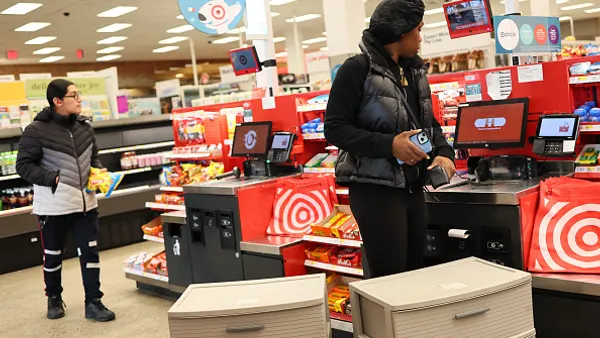Dive Brief:
- Low pay rates were by far the top reason convenience store workers below the manager level left their jobs in 2023, according to a report from NACS and the Coca-Cola Retailing Research Council.
- About 49% of former c-store employees noted their desire for a higher salary as the reason for their exit, more than doubling the second most common answer — a negative work environment and teamwork (23%).
- As the job market remains tight and convenience retailers face more than a decade of turnover rates exceeding 100% — with more than 36% of workers leaving in the first month — operators need to get better about conveying their benefits. The report found that “inaccurate perceptions of pay” contribute to the problem.
Dive Insight:
While pay rates continue to cause headaches, the c-store industry’s wages are nonetheless up 70% over the past 10 years, according to NACS.
Rutters boosted its minimum starting wage to $18 an hour earlier this year, while Buc-ee’s makes waves in social media regularly for its competitive pay levels. However, others lag behind, with average pay closer to $12 per hour, according to Indeed.
Pay isn’t just important for retention. When it comes to attracting new talent, insufficient pay for both hourly and salaried positions joined safety concerns in the top three reasons people chose not to work at c-stores.
Some retailers may need to increase their wages to keep workers on board, while others may need to do a better job of advertising their pay rates to draw in more prospects.
“While individual retailer pay varies, it is important to note that on average, compensation for frontline convenience employees is often in line with — or better than — quick-service restaurants and other frontline jobs,” the report noted.
After a negative work environment, safety concerns and long hours were the third and fourth most common reasons c-store workers left their jobs, according to the report. Others included long commutes and poor benefits or employee perks.
Top reasons c-store employees leave their jobs
In addition to examining pay and communicating pay rates, the report suggested c-stores invest in quality managers to keep workers around. Managers are the face of the company for front-line workers, the report noted, and have a direct impact on the employee experience.
“Nowadays, you don't really get recognition for anything or even just a thank you from the manager,” the report quoted a former c-store worker from Maine as saying.
Investing in proper employee training and laying out career paths also contributes to retention and can help develop store managers.
“It is important for the industry to embrace opportunities to invest in training not only for current employees, but also for next-generation workers and workers looking to reskill for new careers,” the report noted.
The data was compiled from industry interviews, focus groups with former c-store employees and a survey of more than 45,000 adults in the U.S.














